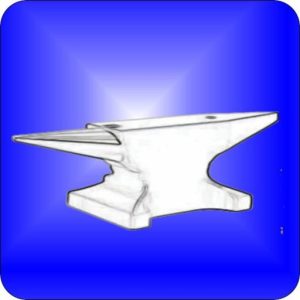There’s a sofa in my office. Sometimes it’s used to seat some clients for a consultation, sometimes I use it for a nap. This evening Anne and I are sitting on it, close together, after a meal of Eddie’s Pizza d’amore.
“I’ve been thinking, Sy. I don’t want to use my grow-shrink superpower very much.”
“Fine with me, I like the size you are. Why’d you decide that?”
“I remember Alice saying, ‘Three inches is such a wretched height to be.’ She was thinking about what her cat would do to her at that height. I’m thinking about what an amoeba might do to me if I were down to bacteria-size and I wouldn’t be able to see it coming because I’d be too small to see light. It would be even messier further down.”
“Well, mess is the point of quantum mechanics — all we get is the averages because it’s all chaos at the quantum level. Bohr would say we can’t even talk about what’s down there, but you’d be in the thick of it.”
She shudders delicately, leans in tighter. <long, very friendly pause> “Where’d that weird number come from, Sy?”
“What weird number?”
“Ten-to-the-minus-thirty-fifth. You mentioned it as a possible bottom to the size range.”
“Now you’re asking?”
“I’ve got this new superpower, I need to think about stuff. Besides, we’ve finished the pizza.”
<sigh> “This conversation reminds me of our elephant adventure. Oh well. Umm. It may have started on a cold, wet afternoon. You know, when your head’s just not up to real work so you grab a scratchpad and start doodling? I’ll bet Max Planck was in that state when he started fiddling with universal constants, like the speed of light and his own personal contribution ħ, the quantum of action.”
“He could change their values?”
“No, of course not. But he could combine them in different ways to see what came out. Being a proper physicist he’d make sure the units always came out right. I’m not sure which unit-system he worked in so I’ll just stick with SI units, OK?”
“Why should I argue?”
“No good reason to. So… c is a velocity so its units are meters per second. Planck’s constant ħ is energy times time, which you can write either as joule-seconds or kilogram-meter² per second. He couldn’t just add the numbers together because the units are different. However, he could divide the one by the other so the per-seconds canceled out. That gave him kilogram-meters, which wasn’t particularly interesting. The important step was the next one.”
“Don’t keep me in suspense.”
“He threw Newton’s gravitational constant G into the mix. Its units are meter³ per kilogram per second². ‘Ach, vut a mess,’ he thought, ‘but maybe now ve getting somevere. If I multiply ħ by G the kilograms cancel out und I get meter5 per second³. Now … Ah! Divide by c³ vich is equal to multiplying by second³/meter³ to cancel out all the seconds and ve are left mit chust meter² vich I can take the square root uff. Wunderbar, it is simply a length! How ’bout that?‘”
“Surely he didn’t think ‘how ’bout that?‘”
“Maybe the German equivalent. Anyway, doodling like that is one of the ways researchers get inspirations. This one was so good that √(Għ/c³)=1.6×10-35 meter is now known as the Planck length. That’s where your ten-to-the-minus-thirty-fifth comes from.”
“That’s pretty small. But is it really the bottom?”
“Almost certainly not, for a couple of different reasons. First, although the Planck formula looks like a fundamental limit, it’s not. In the same report Planck re-juggled his constants to define the Planck mass √(ħc/G)=2.2×10-8 kilograms or 22 micrograms. Grains of sand weight less than that. If Planck’s mass isn’t a limit, Planck’s length probably isn’t either. Before you ask, the other reason has to do with relativity and this is not the time for that.”
“Mmm … so if space is quantized, which is where we started, the little bits probably aren’t Planck-sized?”
“Who knows? But my guess is, no, probably much smaller.”
“So I wouldn’t accidentally go out altogether like a candle then. That’s comforting to know.”
My turn to shudder. <another long, friendly pause>.
~~Rich Olcott


Many believe that space is quantized (myself among them). They also believe that each quanta is a “seething foam” of elementary particles that continuously pop in and out of existence. If this were the case it would be reasononable to think that each quanta would be pressurized due to the energy imparted internally from this movement. Has anyone proposed such a pressure and has any attempt been made to calculate what that pressure may be?
LikeLike
The problem with this idea, Jerry, is that a space quantum, supposing the concept is valid at all, must be a place, not a thing. Just like (40.8509° N, 73.9701° W) is a place on Earth. True, something (Fort Lee NJ) currently resides that that location, but the location itself predates the city and will exist long after humans have left the planet.
Assuming that the notion of a space quantum is valid, the next issue is whether a virtual particle can pop into existence within a quantized volume. If the distance between neighboring space quantum locations is indeed comparable to the Planck length, most of the known subatomic particles would stretch across an immense number of those points. The accepted diameter of a proton, for example, spans about 10^20 Planck lengths. Electrons are thought to be smaller yet by a factor of a thousand to a million. To create a virtual proton, then, the seething foam must simultaneously (time scale on the order of the Planck time) affect (10^16)^3 adjacent points in the quantized space. That’s a lot of coordinated seething, for just one particle., and note that the currently accepted rules of quantum mechanics demand that you can’t have just a fraction of a particle — (10^16)^3 “aye” votes or nothing, and yet it’s supposed to be happening continuously everywhere. I can’t say that’s not even a remote possibility, but it’s hard to imagine a Universe that works that way..
AIUI, both of the above arguments are on weak grounds from the perspective of modern quantum field theory, but I’m not competent to discuss that.
LikeLike